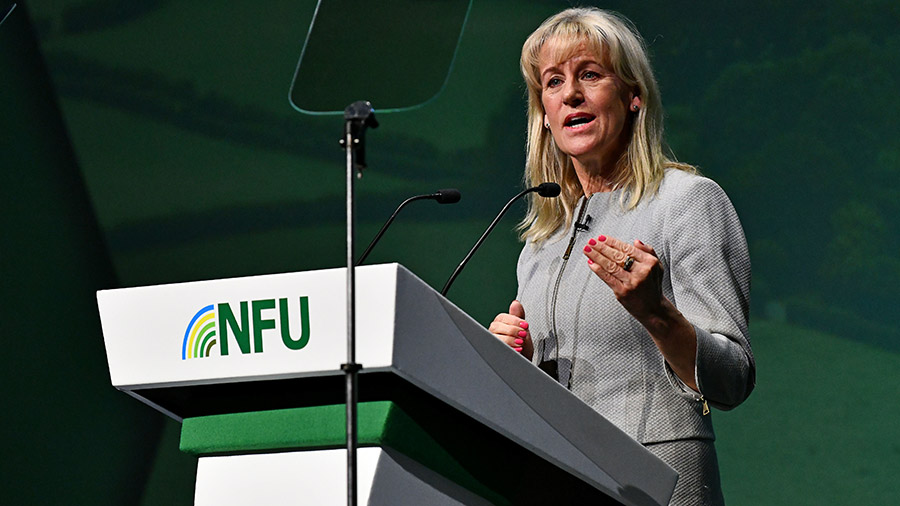NFU Conference 2024: Parties challenged to deliver plans for British food
 © NFU
© NFU NFU leader Minette Batters is challenging the main political parties to outline their plans for British food production in election year.
The union’s outgoing president will give her final speech to the annual conference at the ICC in Birmingham on Tuesday 20 February, after six years at the helm.
With a general election tipped for May, or possibly November, Mrs Batters will challenge political parties to set out their plans for British farming and food production.
See also: Judge us on Red Tractor result, says incoming NFU president
Labour, which is tipped to win power, has not yet detailed its farm policy plans.
The incumbent Conservative government says food production and caring for the environment “must go hand in hand” under its Environmental Land Management programme, while the Lib Dems have called for the annual UK farming budget to be increased to £4bn to support farmers and help the industry meet environmental targets.
Speaking to more than 1,500 farming, political and stakeholder delegates, Mrs Batters will say: “This election will be critical to the future of farming and the food on our supermarket shelves, in our pubs, hotels, bars and restaurants.
“There is a reason why countries invest in food production. It is to mitigate risk and volatility for consumers and give farmers the confidence to keep producing food. But global events have challenged British agriculture, adding to the instability and volatility farmers and growers are facing, when what they really need is certainty.
“That’s why I ask today, which political party will have the right plan for British food?”
‘Uphold food standards’
Mrs Batters will ask which parties plan to deliver core food and farming standards to ensure food imports meet the same high values of animal welfare and environmental protection that British farmers are expected to meet.
Geopolitical events, including the Covid pandemic and the war in Ukraine, and climatic events are affecting the food system’s resilience.
Many farms across the country remain flooded after weeks of heavy rainfall. In places, sugar beet and potatoes are rotting in the ground.
Some winter crops didn’t get planted and some of those that have been washed away, Mrs Batters will note.
“We must speed up planning for on-farm reservoirs to store water for crop irrigation. Water security must underpin national food security,” she will say.
Farmers must also be paid for storing floodwater on food-producing floodplains to protect houses and businesses, Mrs Batters will stress.
Support for home-grown food
A recent survey conducted by More in Common and commissioned by the NFU showed that 82% of British people want to see targets to increase home-grown food production, and 66% said political parties’ plans for farming will be one of the issues that affects who they vote for at the general election.
“Progressive policies on sustainable food production aren’t just important for farmers and growers, but anyone who eats food. And it matters at the ballot box,” Mrs Batters will say.
She will ask: “Which party will be the first to set a target for food production with a statutory underpinning?”
Mrs Batters will tell delegates there is an imbalance between the UK government’s environment and food policy, which is weighted towards the environment.
“We must see changes this year to redress this before many more farms simply disappear,” she will warn.
